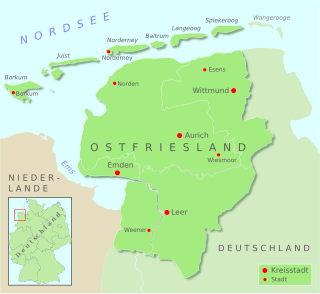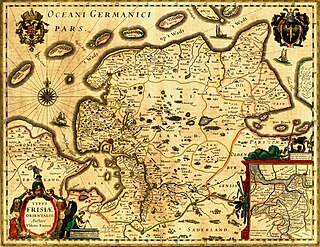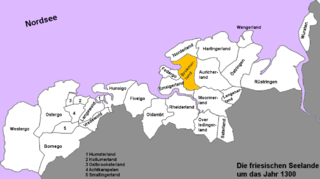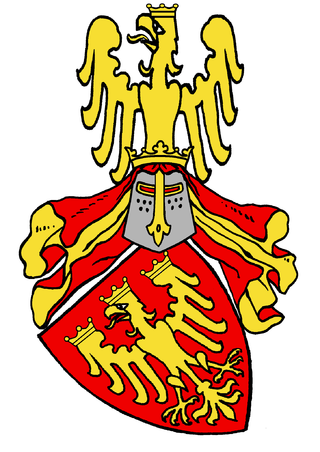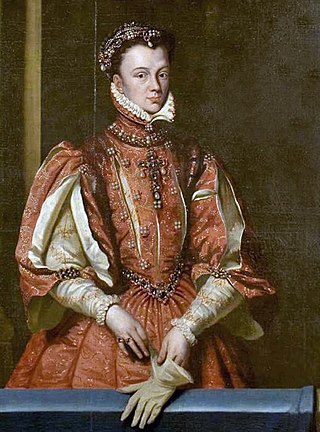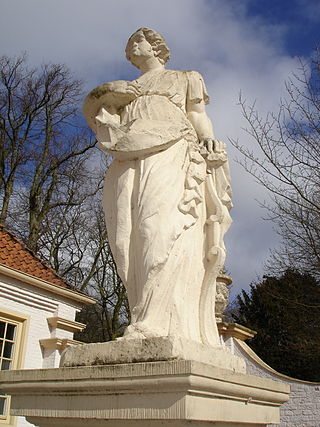| Ruler | Born | Reign | Death | Ruling part | Consort | Notes |
|---|
| Ulrich I | 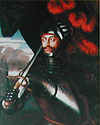 | 1408 | 1464-1466 | 26 September 1466 | East Frisia | A first wife
no children
Theda Ukena
1455
six children | First Count of East Frisia. Emperor Frederick III raised Ulrich to the status of Imperial Count in 1464. |
| Regency of Theda Ukena (1466-1480) | Had no descendants. The county went to his brother. |
| Enno I | 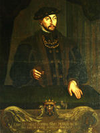 | 1 June 1460 | 1466-1491 | 19 February 1491 | East Frisia | Unmarried |
| Edzard I the Great |  | 15 January 1462 | 1491-1528 | 14 February 1528 | East Frisia | Elisabeth of Rietberg
(1470-1512)
1498
three children | Second son of Ulrich I and Theda Ukena. |
| Enno II |  | 1505 | 1528-1540 | 24 September 1540 | East Frisia | Anna of Oldenburg
1530
six children | Eldest son of the previous. He had a brother: - Johan I of East Frisia : their father, Edzard I had introduced primogeniture in the county of East Frisia, so that Enno II inherited the county alone. Johan had to hold back. Despite his ambitions, he always acknowledged his brother's rights and did not dispute the inheritance. Despite this, Johan is counted as I.
|
| Regency of Anna of Oldenburg (1540-1561) | Sons of Enno II, ruled together, until 1561 under regency of their mother. This coregency implies that the primogenture law issued by their grandfather, Edzard the Great, may have been revoked. |
| Edzard II | 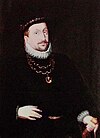 | 24 June 1532 | 1540-1599 | 1 March 1599 | East Frisia | Catherine of Sweden
1 October 1559
Stockholm
ten children |
| Johan II | | 29 September 1538 | 1540-1591 | 29 September 1591 | East Frisia | Unmarried |
| Catherine of Sweden |  | 6 June 1539 | 1599-1610 | 21 December 1610 | East Frisia
(at Berum and Norden) | Edzard II
1 October 1559
Stockholm
ten children | Inherited from her husband some towns in East Frisia, which she ruled autonomously. After her death, her domains were reabsorbed in the county. |
| Enno III | 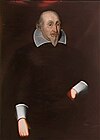 | 30 September 1563 | 1586-1600
1599-1625 | 19 August 1625 | Rietberg
East Frisia | Walburgis, Countess of Rietberg
28 January 1581
three children
Anna of Holstein-Gottorp
28 January 1598
three children | Probably inherited Rietberg from his first wife. The Treaty of Berum (1600) formally divided the inheritance of Walburga between her daughters, and Sabina Catharina got the County of Rietberg. |
| Sabina Catharina | | 11 August 1582 | 1600-1618 | 31 May 1618 | Rietberg | John III, Count of Rietberg
3 March 1601
eleven children | Daughter of Walburgis and Enno III, inherited Rietberg from her mother. Married her paternal uncle, so the county stayed in the family. |
| John III | | 1566 | 1618-1625 | 31 May 1618 | Rietberg | Sabina Catharina, Countess of Rietberg
3 March 1601
eleven children | Brother of Enno III, ruled Rietberg after the death of his wife and niece. |
| Rudolph Christian |  | 2 June 1602 | 1625-1628 | 17 April 1628 | East Frisia | Unmarried | Son of Enno III, and half-brother of Sabina Catharina. Left no descendants. The county passed to his brother. |
| Ernest Christopher | | 1 April 1606 | 1625-1640 | 31 December 1640 | Rietberg | Albertine Marie of St. Martin
10 November 1626
no children | Son of Sabina Catharina and John III. Left no descendants. The county passed to his brother. |
| Ulrich II |  | 6 July 1605 | 1628-1648 | 1 November 1648 | East Frisia | Juliana of Hesse-Darmstadt
5 March 1631
three children | Brother of Rudolph Christian. |
| John IV | | 31 May 1618 | 1640-1660 | 7 August 1660 | Rietberg | Anna Catharina Ernestine of Salm-Reiferscheid
1647
five children | Brother of Ernest Christopher. |
| Regency of Juliana of Hesse-Darmstadt (1648-1651) | In 1654, the county was raised to a principality. Had no male descendants, and the principality passed to his brother. |
| Enno Louis | 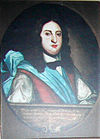 | 29 October 1632 | 1648-1660 | 4 April 1660 | East Frisia | Juliana Sophia of Barby-Mühlingen
(14 April 1636 - 12 August 1677)
7 November 1656
two children |
| Regency of Anna Catharina Ernestine of Salm-Reiferscheid (1660-1666) | Left no descendants. The county passed to his brother. |
| Frederick William | | 16 September 1650 | 1660-1677 | 7 October 1677 | Rietberg | Unmarried |
| George Christian |  | 6 February 1634 | 1660-1665 | 6 June 1665 | East Frisia | Christine Charlotte of Württemberg
14 May 1662
three children | Brother of Enno Louis. |
| Regency of Christine Charlotte of Württemberg (1665-1690) | |
| Christian Everhard the Peaceable |  | 1 October 1665 | 1665-1708 | 30 June 1708 | East Frisia | Eberhadine Sophie of Oettingen-Oettingen
(16 August 1666-30 October 1700)
7 November 1656
ten children
Anna Juliana of Kleinau
(1674-1727)
1701
one child |
| Francis Adolph William | | 13 November 1651 | 1677-1680 | 15 March 1690 | Rietberg | Unmarried | Brother of Frederick William, abdicated to become a canon, but remained regent for his younger brother (despite he was already an adult), and would return for the regency if his niece. |
| Regency of Canon Francis Adolph William, Count of Rietberg (1680-1685) | |
| Ferdinand Maximilian | | 8 May 1653 | 1680-1687 | 10 June 1687 | Rietberg | Johannetta Elizabeth Franziska of Manderscheid-Blankenheim
(26 September 1663-29 April 1704)
4 October 1685
Blankenheim
one child |
| Regencies of Canon Francis Adolph William, Count of Rietberg (1687-1690) and Friedrich Christian von Plettenberg and Hermann Werner von Wolff-Metternich zur Gracht (1690-1702, imperial appointment) | Daughter of Ferdinand Maximilian, after her death the county was inherited by the Kaunitz family. |
| Maria Ernestina Franziska |  | 1 August 1686 | 1687-1758 | 1 January 1758 | Rietberg | Maximilian Ulrich von Kaunitz
6 August 1699
sixteen children |
| George Albert |  | 13 June 1690 | 1708-1734 | 12 June 1734 | East Frisia | Christine Louise of Nassau-Idstein
(31 March 1691 – 13 April 1723)
24 September 1709
Idstein
five children
Sophie Caroline of Brandenburg-Kulmbach
8 December 1723
Berum
no children | |
| Charles Edzard |  | 18 June 1716 | 1734-1744 | 25 May 1744 | East Frisia | Sophie Wilhelmine of Brandenburg-Bayreuth
(8 July 1714 - 7 September 1749)
25 June 1734
one child | The son of Georg Albrecht and the last Fürst of East Frisia of the House of Cirksena. He died without issue.After the death of the last Prince of East Frisia, the state was conquered by King Frederick II of Prussia. |
| East Frisia annexed to Prussia |
















